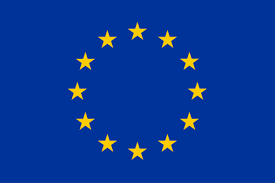BIOFRUITNET recommendations for stronger organic fruit growing systems
Knowledge sharing is key for bringing together innovative ideas and identify new solutions in organic farming. The Horizon 2020 BIOFRUITNET project aims to collect, evaluate, and select locally known strategies and best practices and make them easily accessible to organic fruit growers across Europe.
Two years of gathering information in 18 countries
Over the past two years, BIOFRUITNET sampled and analysed information from farmers over 18 European countries. This allowed to pinpoint the most concerning obstacles to the organic pome, stone and citrus fruit growing systems in the northern, central and southern Europe. Farmers’ experience and their best practices preferences are the starting point to foster knowledge flow and support European organic fruit growers. From here, the BIOFRUITNET consortium applied a multi actor approach where project partners and external experts assessed the efficiency of the collected measures, identified knowledge gaps and proposed recommendations for further research.
Using European data to deepen local knowledge on organic fruit growing
BIOFRUTINET stresses the importance of local or regional strategies. There is the need to deepen the knowledge on pests and diseases that are emerging in specific areas and identify varieties that are resilient to biotic and abiotic stress in given local conditions. This is because the needs in organic fruit growing differ across Europe with obstacles that may be unique to certain regions or have different relevance among various areas. Codling moth (Cydia pomonella), the most common pest in apple and pear, is only one of the many examples. Its infestation results in injured apples that are not suitable for the market, and it leads to sever economical losses. The damage is potentially much higher in the Southern regions, like Italy and France, where the pest reproduces up to three times more than in Denmark or Sweden.
Recommendations to strengthen fruit growing systems
To further strengthen organic fruit growing systems, BIOFRUITNET recommends:
- Focus on breeding varieties that are less susceptible to several diseases and pests. Such varieties would be a valuable solution to reduce the use of external inputs and enhance yields stability;
- Pest and disease control is the major limitation to organic fruit growing, particularly those regarding emerging and invasive species:
- New strategies must be developed that include innovative and sustainable solutions like the release of beneficials insects and the use of vibrations;
- Strategies for the minimisation of copper input and the use of mineral oils are still not sufficient. Registration process of plant protection products and basic substances suitable for organic farming should be adapted to the specific characteristics of natural products;
- Functional biodiversity should be intensified as much as possible. Local and regional research should focus on understanding the interrelations of measures enhancing general biodiversity and the antagonists of key pests. The effects of climate change on these interrelations should also be elucidated;
- New concepts of orchard design are needed. In many cases, organic orchards systems have only one variety and one rootstock over large areas leading to systems susceptible to pests and diseases:
- To answer to the climate change pressure and foster economically viable systems and high-quality fruit production, innovative management strategies for diversified organic fruit orchards are needed;
- Focus should be given to the best combinations of species and of varieties adapted to the different regions of the EU.
For more information about the project and its activities visit BIOFRUITNET’s website and follow us on Facebook and Twitter.
BIOFRUITNET will strengthen the competitiveness of European organic fruit production through strong knowledge networks. Within BIOFRUITNET, IFOAM Organics Europe leads the knowledge transfer and dissemination through easy-to-read end user materials, such as practice abstracts and videos. IFOAM Organics Europe is also responsible for developing a communication kit to maximize the impact of BIOFRUITNET at events, fairs, and congresses. BIOFRUITNET is an EU Horizon 2020-funded project.


